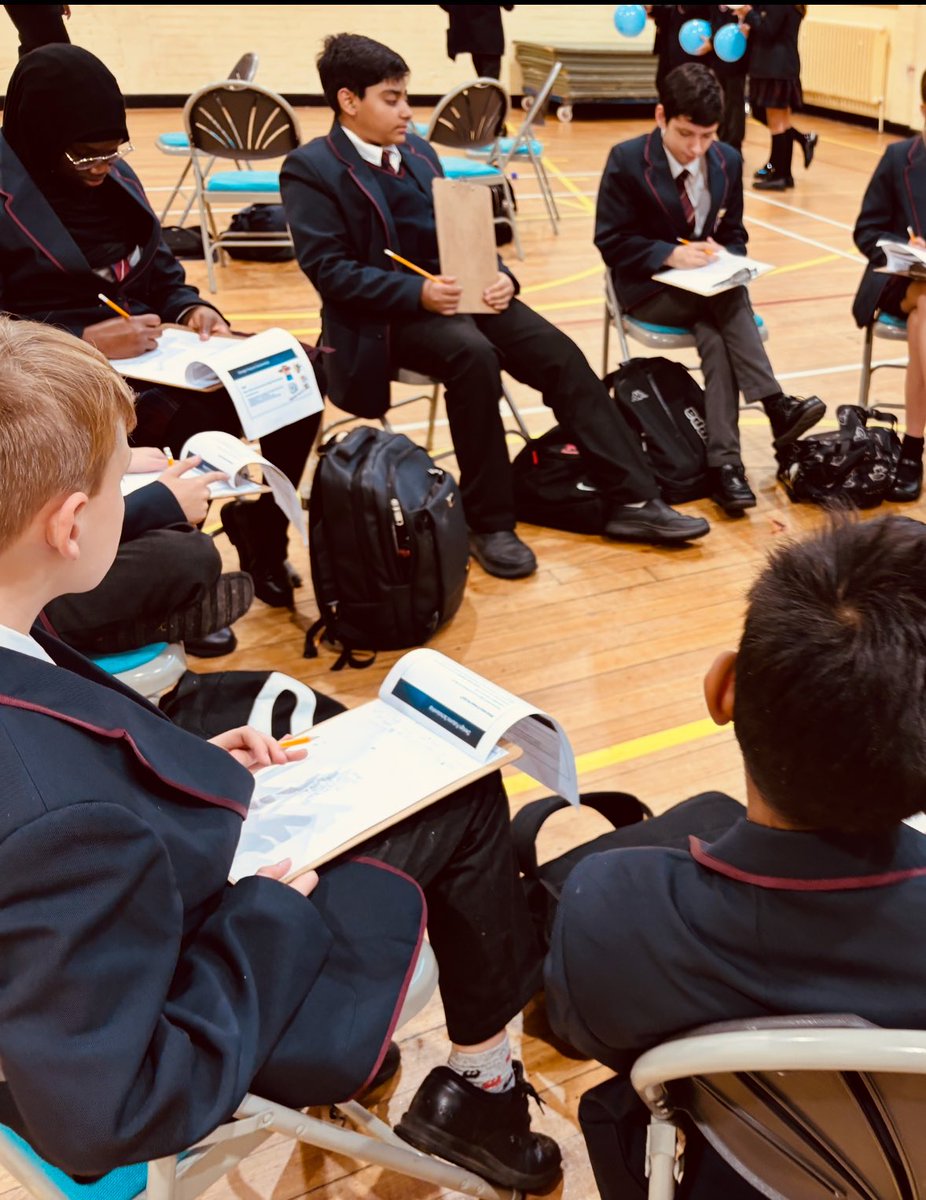08/10/25
🚨 🏀 PE CLUB ANNOUNCEMENT 🏀🚨 Monday after school 3:30-4:30 - KS3 Basketball Club Wednesday after school 3:30-4:30 - KS4 Basketball Club.
follow us @HarrisOckendon

06/10/25
Wonderful morning spent with the science, DT and English scholars, enjoying breakfast and partaking in subject specific activities prior to the official launch of their scholarship programme. Much fun was had by all, designing, creative writing and balloon racing!
follow us @HarrisOckendon


24/09/25
Support us in raising money for our Macmillan coffee morning this Friday by purchasing raffle tickets from reception.
follow us @HarrisOckendon

23/09/25
HAOC Yr 6 Principal Tours: Unable to attend our Open Evening? Come and join us for a summary of the evening and a tour. To book your FREE place, please click on the link below and select the relevant date and time you would like to attend: eventbrite.co.uk/e/yr-6-prin…
follow us @HarrisOckendon

23/09/25
REMINDER HAOC Yr 6 Open Evening. Thursday 25th September 2025 from 5.00pm to 7.00pm. To book your FREE place, please click on the link below: eventbrite.co.uk/e/yr-6-open…
follow us @HarrisOckendon

22/09/25
We have launched HAOC’s Reading Leaders’ programme! Some of our student’s in years 9 & 10 were prepped to begin their ten week buddy reading journey with a select year 7. The Coram Beanstalk representative said she had NEVER met such a wonderful, kind, passionate set of students!
follow us @HarrisOckendon
22/09/25
🚨 PE CLUB ANNOUNCEMENT🚨 Monday Mornings 7:30-8:15 Key stage 3 darts club. Wednesday Mornings 7:30-8:15 Key Stage 4&5 darts club. Students are not allowed to bring their own darts. They will be provided.
follow us @HarrisOckendon
21/09/25
🚨⚽️ PE CLUB ANNOUNCEMENT 🚨⚽️ There will be NO year 7 BOYS football club on Monday 22nd September. Club will resume the following Monday.
follow us @HarrisOckendon

18/09/25
Excellent turn out for netball club tonight! Thank you @LDNMavericks for our new netballs!
follow us @HarrisOckendon
12/09/25
We’re excited to announce that our Sixth Form Open Evening will take place on Thursday 9th October, from 5.00–7.00pm harrisockendon.org.uk/563/an…
follow us @HarrisOckendon

12/09/25
Join us at our Yr 6 Open Evening taking place in school on Thursday 25th September 2025 5.00-7.00pm; Unable to make it? Come and visit on a Principal Tour: All events must be booked in advance. We look forward to seeing you there! eventbrite.co.uk/e/yr-6-prin… eventbrite.co.uk/e/yr-6-open…
follow us @HarrisOckendon

12/09/25
Join us at our Yr 6 Open Evening taking place in school on Thursday 25th September 2025 5.00-7.00pm; Unable to make it? Come and visit on a Principal Tour: All events must be booked in advance. We look forward to seeing you there! eventbrite.co.uk/e/yr-6-open…
follow us @HarrisOckendon









